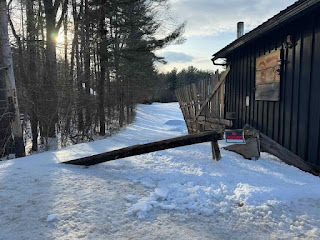date newest »
newest »
 newest »
newest »
 I am AuDHD. I went. It seems it's not really there to teach you much, especially if you're autodidactic, it's more for networking and having a fancy paper. I only have the paper
I am AuDHD. I went. It seems it's not really there to teach you much, especially if you're autodidactic, it's more for networking and having a fancy paper. I only have the paper
 Time after time I've read and heard of so many experiences where public and private schools are built on the foundation of the 'learn all the concepts I tell you and regurgitate them back to me' technique. While that may be fine if someone only wants a few facts and not much critical thought, I believe true learning is much more than giving the 'right' answer.
Time after time I've read and heard of so many experiences where public and private schools are built on the foundation of the 'learn all the concepts I tell you and regurgitate them back to me' technique. While that may be fine if someone only wants a few facts and not much critical thought, I believe true learning is much more than giving the 'right' answer.I've been homeschooled since grade 1. When I was 14, I found out I was someone with high-functioning autism (Asperger's). Now, at 19, I'm quite used to the medical and scientific jargon of research papers as I attempt to find a cure for other intrusive issues besides Asperger's.
As you described, my life is also not the 'normative' or 'packaged model' that most people expect. But regardless of how others see it, I've found there is so much more freedom to explore and be creative. It allows one to flourish with the right initiative. And that, I believe, is one of the most amazing ways to live.
I also love your books, "Switched On" (which actually led me to the discovery of the therapy tDCS, that I am currently undertaking), and your memoir, "Look Me in the Eye".





As a fellow autistic, I can’t tell you how much your words resonate with me. Reading this post, I felt that deep, familiar pang of existing in a world that, despite all my successes and personal growth, still finds ways to remind me that I’m different. Like you, I’ve often found myself as the observer rather than the participant, sitting on the sidelines of conversations that revolve around experiences I never had and probably never will.
Your book, Look Me in the Eye, changed my life. It was the first time I saw myself in someone else’s story—not just as an outsider, but as someone whose differences had value. Your ability to articulate the autistic experience with honesty, wit, and depth has been a guiding light for me. You inspired me so much that I am currently writing two books about my own journey: Stoneface and Trying to Connect.
I, too, took the unconventional route. The idea of following the well-worn path—school, dorms, social circles, the so-called “normal” way of growing up—never made sense to me. I carved my own way, learning and adapting in a world that wasn’t built for the way my mind works. And while that has brought me a sense of pride, there are still those moments, like the one you described at the gym, where I’m reminded that no matter how far I’ve come, I’m still different. That reminder is both a badge of honor and, at times, a lonely truth.
Your words remind me that I’m not alone in this experience, that there are others out there who feel the same push and pull—success and isolation, triumph and disconnect. Thank you for continuing to put these feelings into words. You don’t just speak for yourself—you speak for so many of us who have felt this way but didn’t know how to express it.
With admiration and gratitude,
C. V. Wooster